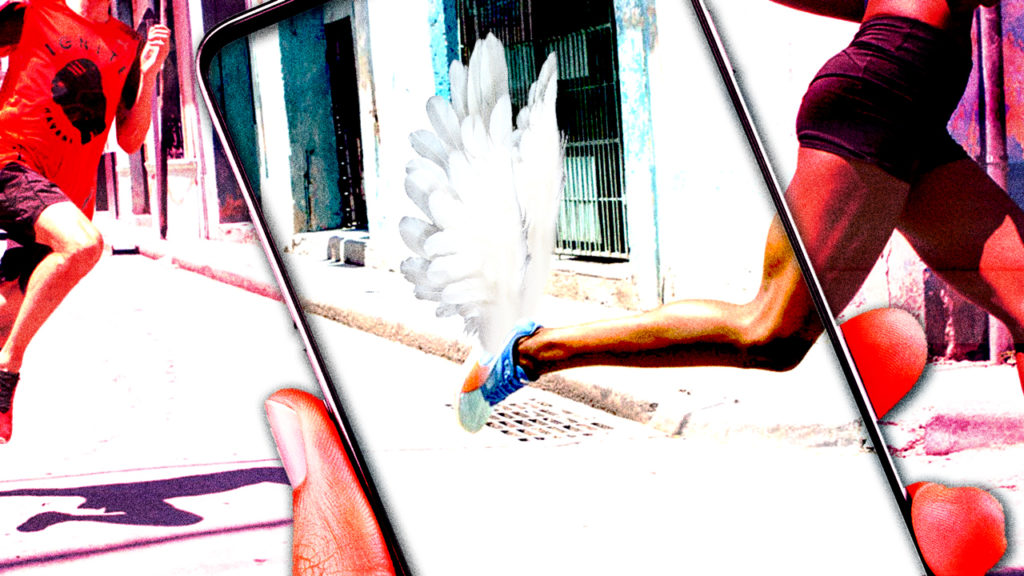Puma is promoting its new LQD Cell Open Air sneaker in augmented reality (AR) with a mobile app that scans the shoe and unlocks games as well as photo and video effects.
Limited-edition LQD Cell (pronounced “liquid cell”) sneakers launched April 4 with a silhouette covered in QR codes.
Consumers can download a special mobile app and scan the shoe inside a Puma store to unlock AR effects, such as one that makes the shoe appear to be on fire or see a 3D exploded model to see what’s inside.
Contrary to what one would expect of a shoe covered in QR codes, the AR app recognizes the shoe through machine learning instead of scanning the codes themselves.
Users can also scan the silhouette to unlock “LQDASH,” an augmented reality running game. The game challenges a user’s agility for the chance to win a pair of LQD Cell shoes. Owning the shoes is not required to play.
Additional AR filters will be released this year, such as turning the shoes invisible, or a camera filter made to look like a surveillance feed will arrive alongside future shoe releases.
Puma’s AR app does not host an ecommerce feature, requiring consumers to seek out the real shoes elsewhere.
The global athletic footwear market size is expected to reach $95.14 billion by 2025, according to Grand View Research. Limited-edition kicks tap into consumer’s fear of missing out (FOMO) but also make it more difficult to experience them before it’s too late.
Marketers are making this process easier by using mobile augmented reality apps and other emerging tech to reach consumers who thrive on sneaker culture.
“The sneaker aficionado space right now is interesting and exciting,” Allison Giorgio, Puma’s vice president of brand marketing told AList in a 2018 interview. “We’re trying to figure out how do we move at the speed of culture that signals trends, innovate faster and release products quicker. Our mission is to be the fastest sport’s brand in the world, and we take that to heart from a development and marketing side.”
Puma is using a mix of emerging technology and influencer marketing to capture a young, digitally-savvy demographic. The brand’s partnership with singer and actress Selena Gomez resulted in more than 7.5 million interaction, helping Puma become one of the top-mentioned brands on Instagram in 2018.
In December, Adidas launched a Snapchat lens that allowed users to virtually try on its Ultraboost 19 running shoe before its release date.
Through its SNKRS Stash app, Nike uses exclusive geo-located experiences to offer digital “shock drops” where users can purchase the shoes in Berlin, Chicago, New York and Los Angeles. Nike used the app to allow virtual try-ons of its Momofuku sneakers before they dropped in 2017.

